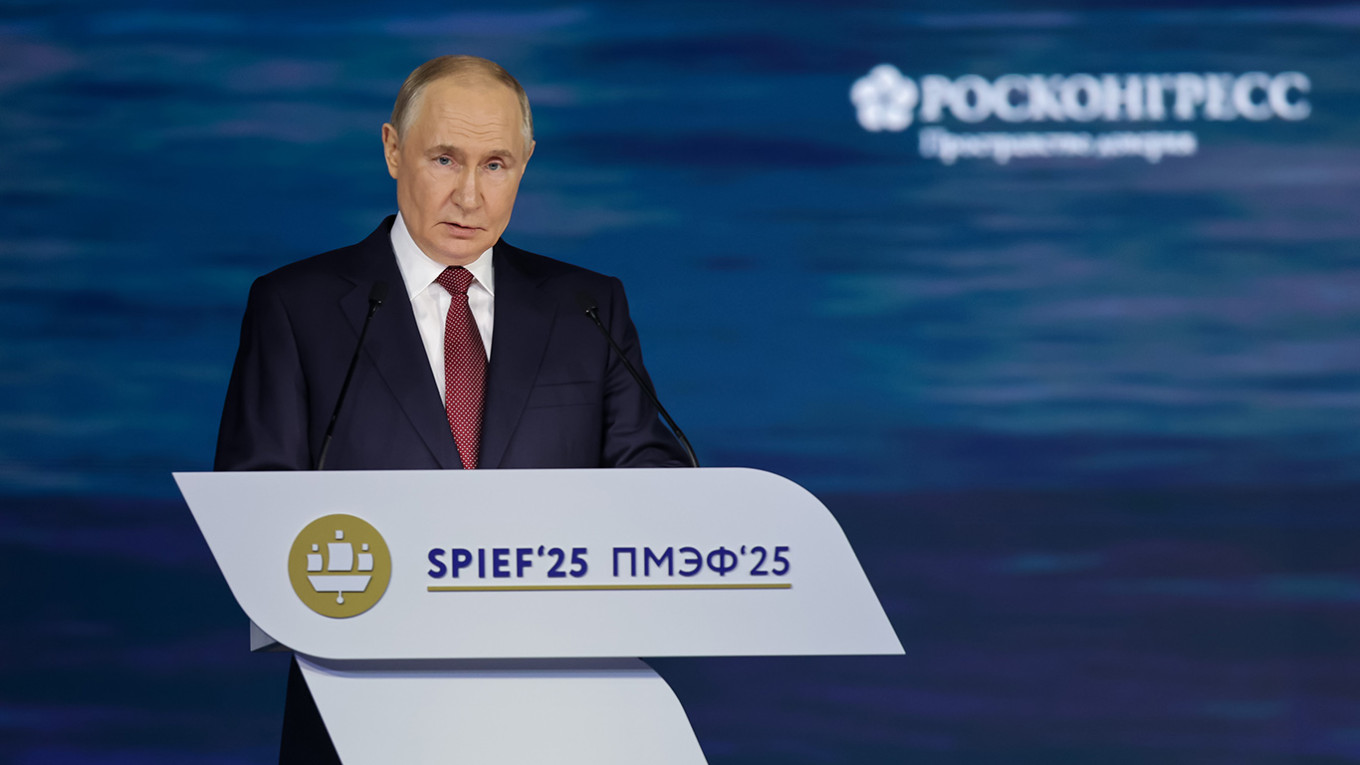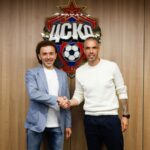President Vladimir Putin highlighted the increasing economic clout of the BRICS nations and Russia’s shift towards non-Western markets during a plenary session at the St. Petersburg International Economic Forum (SPIEF) on Friday. He described this as a “restructuring” of the Russian economy.
“BRICS accounts for 40% of the global economy,” Putin stated in his speech. “It’s clear that this share will continue to expand. This is a medical fact, as they say. The growth will primarily stem from the dynamic countries within the Global South.”
For some time, Putin has aimed to position BRICS — initially formed by Brazil, Russia, India, China, and South Africa — as a geopolitical counterbalance to Western dominance. The group, now including nations like Indonesia and the United Arab Emirates, also featured prominently in his address at last year’s economic forum.
Prior to Putin’s appearance, attendees were shown a striking video illustrating the history of global economic progress. It portrayed the current era with the U.S. depicted as a waning financial power, represented by a Hollywood sign in Los Angeles engulfed in flames. In stark contrast, the BRICS coalition was presented as an emerging, fairer force for global growth in the 21st century.
The plenary session, initially set to begin at 2 p.m. local time, started about 45 minutes late. Lebanese journalist Nadim Koteich moderated the discussion, which included leaders such as Indonesian President Prabowo Subianto, Chinese Vice Premier Ding Xuexiang, Bahraini royal Nasser bin Hamad Al-Khalifa, and South African Deputy President Paul Mashatile, alongside Putin.
Koteich introduced Putin by noting that the diverse panel indicated Russia’s international engagement, emphasizing the multipolar nature of the world.
In his speech, Putin asserted that Russia’s GDP growth has exceeded the global average in recent years despite a “complex external environment,” underscoring the increasing significance of non-oil and gas revenues. He highlighted Russia’s expansion of exports to nations like China and India as part of its strategy to reduce reliance on traditional hydrocarbon markets.
“Our economy is evolving to be of higher quality, more complex, and multifaceted,” Putin remarked. “Our strategic goal is to actively and methodically transform the structure of the national economy step by step.”
He elaborated on how the government, regional authorities, businesses, and experts have set joint objectives to enhance long-term growth rates and implement structural economic changes.
Putin prefaced his proposals with a discussion on the need to adjust to the “tectonic changes” occurring worldwide, including ongoing conflicts in the Middle East. However, unlike the previous year, he refrained from directly referencing the war in Ukraine during his nearly hour-long address.
He also emphasized the necessity for Russia to take preventive measures against an economic downturn. “Some experts are indicating risks of stagnation or even recession, and this must be prevented at all costs,” he cautioned.
Putin’s comments come amid rising concerns about the nation’s economic future. This week, both Economy Minister Maxim Reshetnikov and Sberbank CEO German Gref pointed to the central bank’s 20% key interest rate and nearly double-digit inflation as significant hindrances to growth.
During his address, Putin countered the perspective that rising defense expenditures had become the main driver of Russia’s economy. He reiterated his call for achieving “technological sovereignty” amid extensive Western sanctions and the exit of foreign companies.
He stressed the importance of flexibility within the defense sector, advocating for closer collaboration between military and civilian production.
“We need to abandon the division of enterprises into military and civilian categories,” he stated. “The most successful entities are those that can manage both types of projects. Our defense sector has gained substantial momentum, with enterprises ramping up production and developing new weapon systems.”
Once referred to as the “Russian Davos,” SPIEF used to draw prominent Western business leaders and policymakers, serving as a venue for significant deals like the Nord Stream gas pipeline. However, since 2022, the forum’s focus has shifted towards nations in Asia and Africa as Moscow has found itself increasingly isolated from the West.
In a written message to SPIEF participants earlier this week, Putin announced that the 2025 forum will center on “technology and digital transformation as pivotal drivers of leadership in today’s world,” along with topics such as demographics, science and education, labor productivity, and social welfare.

